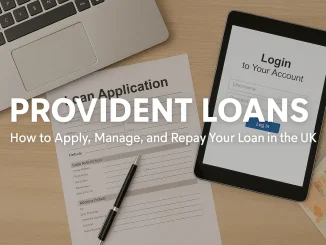You can get a business loan with bad credit by approaching specialist lenders, improving your financial profile, and preparing essential documents.
Many small business owners in the UK struggle with bad credit scores, but that does not mean funding is impossible. Alternative lenders, credit unions, and even some mainstream banks now offer options for businesses with financial challenges.
The key lies in understanding what these lenders require, comparing offers carefully, and taking steps to present your business in the best possible light. In this guide, we explain the loan types available, the application steps, and tips to improve your chances of approval even with a poor credit history.
What Is a Bad Credit Business Loan?
A bad credit business loan is designed for companies or sole traders with low credit scores or limited credit history. Traditional banks often reject applications from these businesses due to perceived risk, but alternative lenders fill this gap.
Key features:
Higher approval rates compared to traditional loans
May involve higher interest rates to balance risk
Flexible eligibility criteria, focusing on business potential rather than past credit mistakes
Who is it for?
Start-ups with no credit history
Small businesses recovering from financial setbacks
Entrepreneurs with irregular cash flow or missed payments
Types of Business Loans for Bad Credit
| Loan Type | Typical Amount | Repayment Term |
|---|---|---|
| Secured Business Loans | £10,000 – £250,000 | 1–10 years |
| Unsecured Business Loans | £5,000 – £50,000 | 1–5 years |
| Merchant Cash Advances | £5,000 – £150,000 | Based on sales volume |
| Invoice Financing | £1,000 – £100,000 | Linked to invoices |
Each loan type comes with different risk levels, interest rates, and approval times. Secured loans require assets as collateral, while unsecured options rely on your business’s revenue potential rather than physical guarantees.
Steps to Get a Business Loan with Bad Credit
Securing a business loan with bad credit is possible if you approach the process strategically. Follow these steps to improve your approval chances:
Step 1: Check Your Credit Report
Before applying, review your credit report from agencies like Experian or Equifax. Correct any errors and understand what lenders will see.
Step 2: Prepare a Strong Business Plan
A clear, detailed business plan can offset bad credit concerns. Lenders want to see:
Revenue projections
Market analysis
Repayment strategy
Step 3: Compare Specialist Lenders
Not all lenders have the same criteria. Alternative finance providers and online platforms often have more flexible terms than traditional banks.
Step 4: Gather Required Documents
Minimal paperwork is key for quick approvals. Usually, you need:
Proof of business ownership
Bank statements
Tax returns
Financial forecasts
Step 5: Apply and Review Offers
Submit your application online or directly to lenders. Compare loan amounts, interest rates, and repayment schedules before signing any agreement.
Lenders Offering Business Loans with Bad Credit in the UK
When traditional banks say no, there are several alternatives for UK businesses with bad credit:
Online Alternative Lenders – Quick approval, flexible eligibility criteria
Credit Unions – Community-based, often lower interest rates than banks
Peer-to-Peer Lending Platforms – Direct loans from individual investors
Specialist Bad Credit Finance Companies – Tailored solutions for high-risk applicants
Sample Lenders Table:
| Lender Type | Typical Loan Range | Approval Time |
|---|---|---|
| Alternative Lenders | £5,000 – £150,000 | 24–48 hours |
| Credit Unions | £1,000 – £25,000 | 2–5 working days |
| Peer-to-Peer Platforms | £10,000 – £200,000 | 1–3 working days |
| Specialist Finance Companies | £2,000 – £100,000 | Same day to 3 days |
Tips to Improve Approval Chances
Getting approved with bad credit often requires additional effort. Here are some effective strategies:
Add a Guarantor: Having someone with a stronger credit history co-sign the loan reduces risk for lenders.
Offer Collateral: Secured loans backed by property or assets often come with lower interest rates.
Start Small: Requesting a smaller loan amount increases approval likelihood and builds credit history.
Show Financial Improvement: Recent profit growth or strong cash flow can outweigh past credit issues.
Maintain Accurate Records: Well-organised financial statements inspire lender confidence.
Pros & Cons of Bad Credit Business Loans
| Pros | Cons |
|---|---|
| Easier approval for businesses with poor credit | Higher interest rates than traditional bank loans |
| Fast funding, sometimes within 24 hours | Lower maximum loan amounts |
| Improves credit profile if repaid on time | Shorter repayment terms, can strain cash flow |
| Alternative lenders offer flexible criteria | May require collateral or guarantor for better rates |
Alternatives to Business Loans for Bad Credit
If you do not qualify for a business loan or want to explore other options:
Government Support Schemes – Grants or low-interest loans for start-ups and SMEs
Crowdfunding Platforms – Raise funds directly from the public
Peer-to-Peer Lending – Investors provide funds through online platforms
Business Credit Cards – Short-term financing with rewards and cashback options
- Alternative Ways to Access Credit if You Have a Low Credit Rating
FAQs
Q1: Can I get a business loan with bad credit and no collateral? → Yes, some lenders offer unsecured loans, but interest rates may be higher.
Q2: How quickly can I get approved? → Many alternative lenders approve applications within 24–48 hours if documents are ready.
Q3: Will taking a bad credit loan improve my credit score? → If you repay on time, it can help rebuild your credit history.
Q4: Are government schemes available for bad credit businesses? → Yes, some UK government-backed schemes support SMEs regardless of credit history.
Q5: What is the typical interest rate for bad credit business loans? → Rates vary widely but are usually higher than standard business loans due to risk factors.


